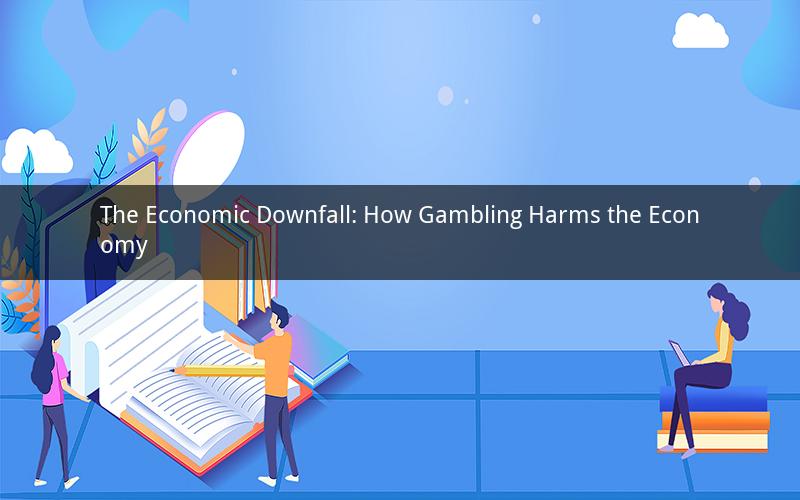
Introduction:
Gambling, once considered a mere form of entertainment, has now become a multi-billion-dollar industry. While it brings in significant revenue for governments and businesses, it also has a darker side. This article delves into the negative economic impact of gambling and explores how it can harm the economy.
1. The Cost of Problem Gambling:
Problem gambling, also known as gambling addiction, is a significant concern that often goes unnoticed. When individuals become addicted to gambling, they spend excessive amounts of money on betting, leading to financial ruin. This not only affects the gamblers themselves but also their families and communities. The economic cost of problem gambling includes lost income, increased debt, and the burden on social welfare systems.
2. Job Loss and Reduced Productivity:
The gambling industry, while providing employment opportunities, can also have a negative impact on other sectors. Many individuals who work in the gambling industry, such as casino employees, may experience job loss due to economic downturns or changes in regulations. Additionally, problem gamblers may prioritize their gambling activities over their jobs, leading to reduced productivity and potential unemployment.
3. Increased Crime Rates:
Gambling can fuel crime rates, both directly and indirectly. The illegal gambling market, which often thrives in areas where legal gambling is restricted, can lead to organized crime and corruption. Moreover, problem gamblers may resort to illegal activities to fund their gambling habits, such as theft or fraud. The resulting increase in crime places a burden on law enforcement agencies and affects the overall economy.
4. Resource Allocation and Social Services:
The revenue generated from gambling is often used to fund government initiatives and social services. However, when gambling becomes an addiction, it can strain these resources. Problem gamblers may require extensive support from social welfare systems, including counseling, rehabilitation, and financial assistance. This diverts funds from other essential areas, such as education, healthcare, and infrastructure development.
5. Impact on Tourism and Local Businesses:
Gambling destinations attract tourists, contributing to the local economy. However, excessive gambling can have a negative impact on tourism. When individuals become addicted to gambling, they may spend less on other activities, such as dining, shopping, and sightseeing. This can lead to a decline in revenue for local businesses and a decrease in overall tourism.
6. The Negative Effects on Communities:
Gambling can have a detrimental effect on communities, particularly in areas heavily reliant on the gambling industry. The focus on gambling can lead to a decline in other industries, such as manufacturing or agriculture. This can result in increased unemployment, reduced economic diversity, and a decline in the overall quality of life.
7. The Role of Regulation:
While gambling can have negative economic consequences, proper regulation can mitigate some of these effects. Effective regulation can ensure that gambling is conducted responsibly and that problem gamblers receive the necessary support. However, the absence of regulation or inadequate enforcement can exacerbate the negative economic impact of gambling.
8. The Psychological and Social Costs:
Gambling addiction not only affects individuals economically but also has psychological and social consequences. The stress, anxiety, and depression associated with problem gambling can lead to strained relationships, family breakdowns, and even mental health issues. These social costs can have a ripple effect on the economy, impacting healthcare systems and social welfare.
Conclusion:
Gambling, while providing economic benefits, also has a darker side that can harm the economy. The cost of problem gambling, job losses, increased crime rates, resource allocation issues, and the negative impact on communities highlight the negative economic consequences of gambling. It is crucial for governments, businesses, and society to address these issues through effective regulation, support for problem gamblers, and promoting responsible gambling practices.
Questions and Answers:
1. How does problem gambling affect the economy on a macro level?
Problem gambling can lead to increased unemployment, reduced productivity, and a strain on social welfare systems. This can result in a decrease in overall economic growth and stability.
2. Can gambling contribute to the growth of the economy?
While gambling can bring in significant revenue, it is important to consider the negative economic consequences, such as problem gambling, job losses, and increased crime rates. These factors can offset the economic benefits.
3. How can governments mitigate the negative economic impact of gambling?
Governments can implement effective regulation, provide support for problem gamblers, and promote responsible gambling practices. Additionally, investing in education and awareness campaigns can help reduce the prevalence of problem gambling.
4. Can the negative economic impact of gambling be outweighed by the positive effects on tourism?
While gambling can attract tourists and contribute to the tourism industry, the negative economic consequences, such as job losses and increased crime rates, can outweigh the positive effects. A balanced approach is necessary to maximize the benefits while minimizing the drawbacks.
5. What role does society play in addressing the negative economic impact of gambling?
Society can play a crucial role by promoting responsible gambling practices, supporting problem gamblers, and raising awareness about the potential negative consequences of gambling. Additionally, society can advocate for effective regulation and policies to mitigate the economic impact of gambling.